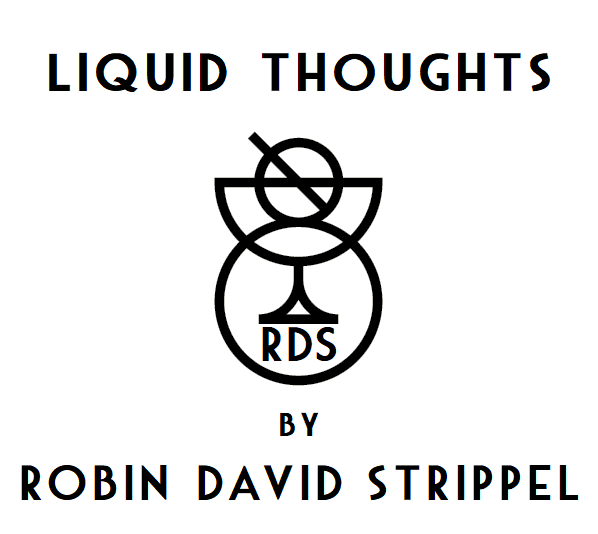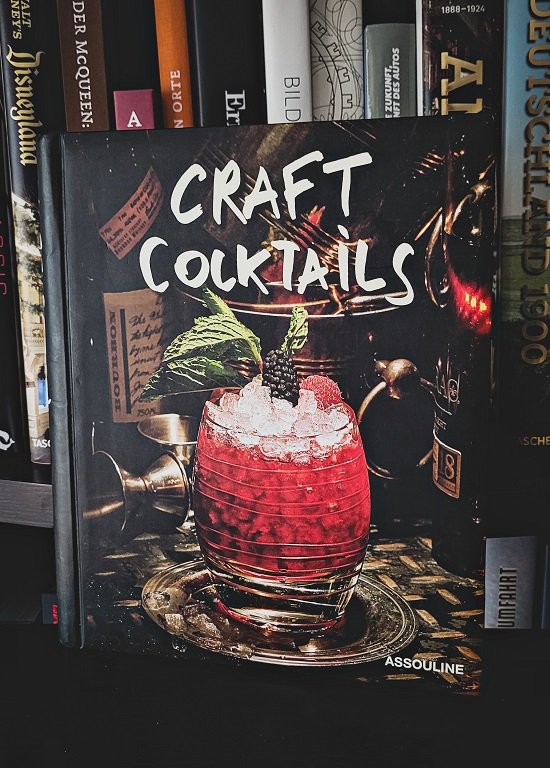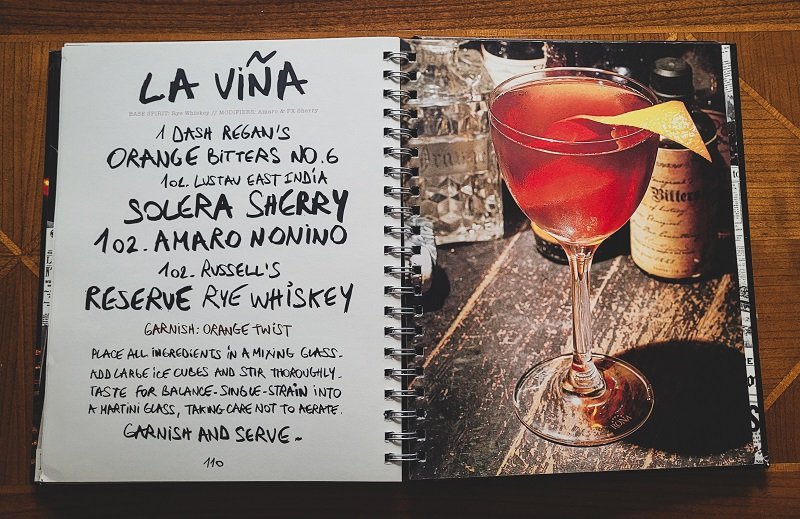Craft Cocktails - Brian Van Flandern
Craft Cocktails
Brian van Flandern / 140 Pages / April 2013
This will probably be the shortest bar book review on LiquidThoughts. Don't worry, not because it's so one-sidedly awful, but aside from the recipes, it simply has & offers almost no content. But first, let's start with the publisher & author. The former is Assouline, a very interesting and specialised French publisher that now focuses largely on extremely, I repeat, extremely expensive coffee table books (we're talking >500 € or sometimes four figures) that are on display in matching high-end department stores, concept stores, and so on. As far as this is concerned, we have an exception here, so to speak. When the volume was published, it was somewhere around the usual 30-40 € for such a book. The binding is quite unusually solved via spirals, the paper rather matte and doesn't really seem to be the best quality out there, but also not below average. But what you can probably identify immediately from the pictures below: Graphic design is found everywhere with a book from Assouline, on every single recipe page. More about that in a moment.
You can find the Cuzco mixed by us here
First, let's talk about the author of this work: Brian van Flandern. While not a household name nowadays, at least in Europe, he seems to have been well-known in America, especially in the early days of the cocktail renaissance — i.e. the early to mid-2000s. Initially more of a hobby and part-time bartender, he later became a full-time cocktail consultant and developed the cocktail programs for numerous higher-end restaurants in the States in the late 2000s. He later added writing to his career, in particular his now more extensive series for Assouline, which began in 2009 with "Vintage Cocktails", which already won an award as his first book. The series continued under the same easy-to-remember names, Tequila Cocktails, Whiskey Cocktails, you get it.
I with my very extensive bar library am the first who no longer wants to see the same texts in every bar book: Bar tools, tips, and tricks or similar introductions with always the same stories. But what is found here, I have actually never seen in any other bar book:
In fact, a half-page foreword by an industry friend of van Flandern. That's it. That's literally it. It is immediately followed by the recipes, then another double page directory, in which virtually for each recipe the mixologist (strange, why not as usual directly with the recipe?) and the respective glass, if possible with brand name, is listed. The latter I actually consider to be a great idea, nevertheless it's a weird choice to communicate it this way. With those glasses, by the way, you notice again the status of Assouline, a lot of Rosenthal, Lalique and Versace can be found here.
The page after that directory is already the last: A small conversion chart for ounces and millilitres, as well as cups, etc., the usual naming in an acknowledgement of all helpers, done, the book ended.
Here you can find the La Vina mixed by us
Thus, only the recipes, which literally make up 99% of the book, remain to be discussed. In that aforementioned directory, one learns by recounting that a good 60% of the recipes come from himself, the rest from well-known bars in the US. A very pleasant ratio, which promises original cocktails and is so rare to find in non-bar releases of cocktail books, which otherwise often just collect a lot and intersperse a self-creation here and there.
The recipes themselves consist of a pleasant mix, starting with stirred drinks and sours that can be made mostly with spirits/liqueurs found in any liquor store, without any DIY ingredient, to mostly also relatively easy to perform spirit infusions. Sometimes here and there some cooking skills for an ingredient are required, but without any equipment (no sous vide, no fatwashing, etc.) and on a very easy level.
The two recipes shown here are more on that simpler level, without any ingredients to be prepared beforehand, but are actually among my favourite drinks in the book.
What I do not understand at all on those recipe pages: Yes, "design language" all well and good, the font is based on some style of rough handwriting, but why are the font sizes of the ingredients completely randomly mixed up? Note the first drink picture in this article, the "Cuzco": Aperol is written in huge letters while only measuring 22.5ml, while the main ingredient, Pisco, is written in absolutely tiny letters below that. A coherent system? Nowhere to be found. Also, somewhat strange and breaking with the design language: when DIY methods are needed, there is suddenly a small text in grey and in a different, simpler font, but hard to read somewhere at the bottom of the page. The same goes for the very rarely found additional information concerning the drinks. Why is there only for some (maybe every 3rd to 4th drink) cocktails a single sentence of context or commentary under the drink pictures? Hard to tell. In general, there are otherwise no descriptions or history on the drinks, a bit disappointing.
Conclusion:
"Craft Cocktails" is a solid collection of recipes for the home bar, with on average not too boring, but also not too sophisticated drinks for more advanced hobby bartenders. The ratio of van Flandern's own drinks compared to recipes from other mixologists is a sensible choice and makes sense for this type of recipe collection. The design is a matter of taste, for me, it is very entertaining the first 1–2 times scrolling through it or testing some recipes, with multiple uses it is logically rather annoying in terms of readability. Also, aside from the one-page preface, there really is zero added value outside the recipes, nothing, not even the industry standards on bar tools, no tips, drink descriptions, nothing. Definitely something to keep in mind. So overall an impression remains in the direction of "sufficient, not more, not less", at least at the original price. The current prices around 60€ — up to triple digits in some cases — are of course not worth it.




